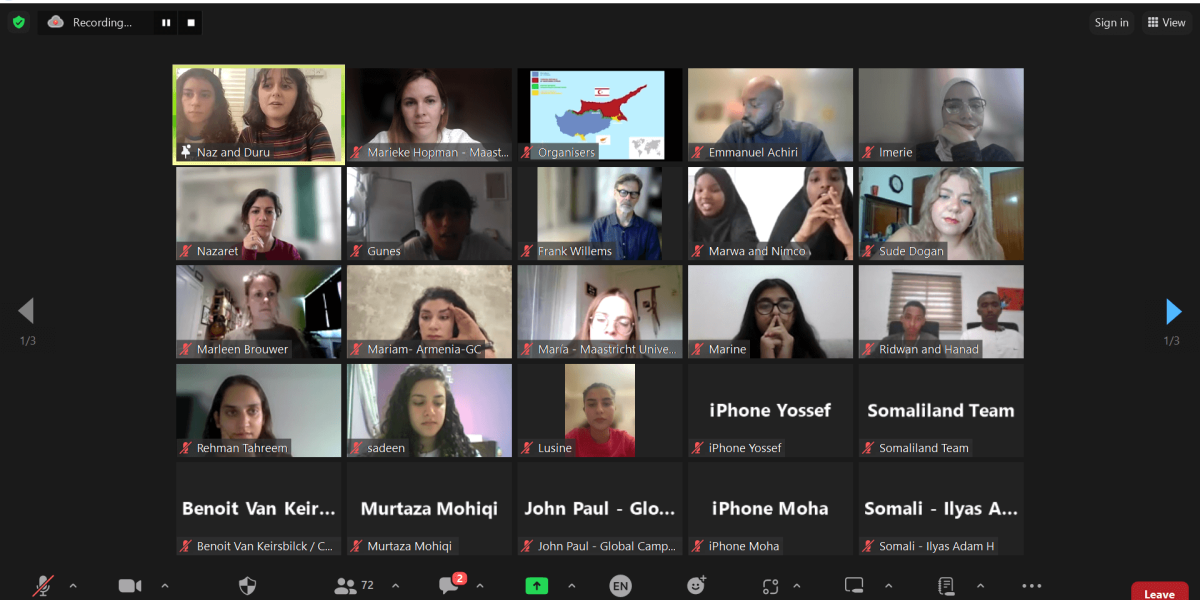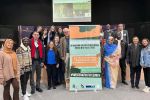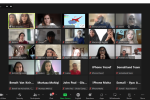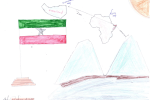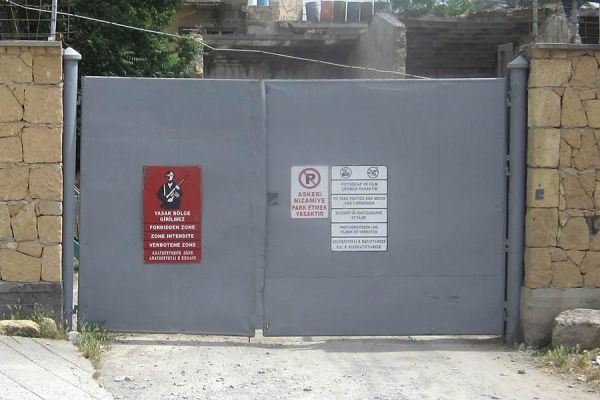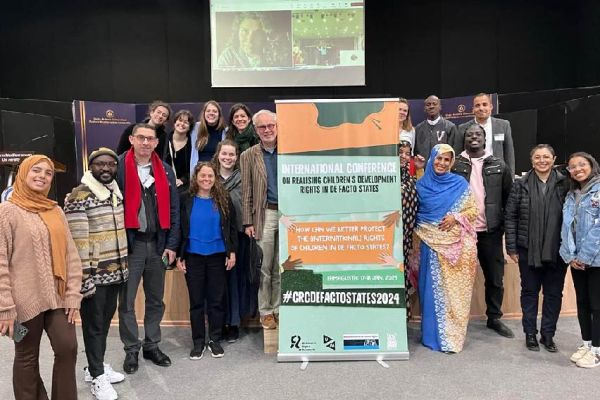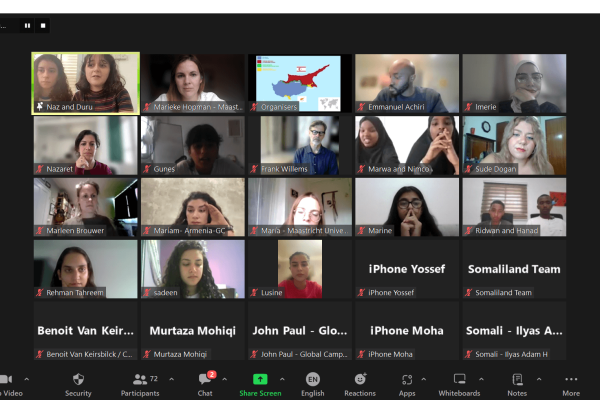“What makes me and the rest of the children living in unrecognized states less human than the children living in other states?”
On October 28, 2023, the Children’s Rights Research project organised the first stage of the International Conference on Realising Children’s Development Rights in De Facto States. The event was a child-led conference, which aimed to amplify the voices of children in de facto states. The conference provided a platform for the children themselves to highlight the challenges they face in finding protection for their rights. The ultimate goal of the overall conference is to facilitate conversations between children, academics, and different societal actors (e.g. politicians, non-profit organisations), to ensure that every child, even those amidst political and legal conflicts, enjoys equal access to developmental rights.
During the event, children from the Turkish Republic of Northern Cyprus, Somaliland, Sahrawi Arab Democratic Republic, Nagorno-Karabakh, and Palestine shared their first-hand stories. This is what they said:
Stories
- The Turkish Republic of Northern Cyprus
“Children who require or request therapy are denied and ridiculed or completely ignored”.
Dürü and Naz, two children from the Turkish Republic of Northern Cyprus, talked about systemic issues affecting children's well-being in education and family dynamics. Dürü explained problems within the Turkish Cypriot education system, including differences between public and private schools, unstable school buildings with frequent electricity cuts, and the neglect of children’s mental health challenges and neurodivergence. Naz discussed challenges within families, talking about how children have a hard time when parents separate and the stigma surrounding therapy. Both, Dürü and Naz, shared their experiences to raise awareness and called for actions in addressing the everyday struggles faced by Turkish Cypriot children in education and family life.
- Somaliland
“The education system needs a lot of work to adapt to today's world and the different needs of students”.
Marwa, Nimco, Ridwan, and Hanad shared with us that the most pressing issues for children’s rights in Somaliland are in the areas of education, healthcare, and employment. They emphasized the need for equal opportunities in schools, calling for qualified teachers and a unified education system. Secondly, they explained the urgent need for accessible and quality medical services for all. In the employment sector, they want a fair hiring process and more job opportunities. They believe that the children in Somaliland should be able to say what they think and dream about, and they want to work together to make the future better for everyone.
3. Sahrawi Arab Democratic Republic
“Insufficient funds also mean inadequate safety measures for children. Schools are frequently situated far from the homes of many children, making the journey unsafe, particularly for girls, putting their academic progress at risk.”
Moha took us on a journey to the desert refugee camps, where children like her face huge challenges in relation to education. She explained how the lack of finances leads to overcrowded classrooms, the absence of teachers, and a deficit of essential resources. The consequences include kids dropping out of school, an adverse impact on their well-being, and limited opportunities, particularly for children with special needs. Moha believes that everyone, no matter where they come from, should receive a good education because it can bring a positive change in society. Therefore, she asked for urgent need for improvements in the education system to make sure everyone has a better future.
4. Nagorno-Karabakh
“In the war of September 27, 2020 in Nagorno-Karabakh, all the rights of children were violated, in particular- the right to life, the right to free movement, the right to education”.
Marine and Lusine shared heart-wrenching experiences of the 2020 war and the subsequent challenges they faced, including the loss of homes, cities, and loved ones. This happened in the ongoing conflict between Azerbaijan and Armenia over the Nagorno-Karabakh region. They told us that the blockades imposed by Azerbaijan left them without essential resources, violating their fundamental human rights. On September 19, 2023, Azerbaijan attacked the Armenians living in this region, taking away their right to live in their homeland through military force and twenty-four-hour aggression against the civilian population. This attack impacted heavily on children’s basic needs and rights. Both Marine and Lusine emphasized the need for international attention and condemnation of these atrocities. Expressing disappointment at the insufficient global awareness of their situation, they concluded: “My Motherland, the place of my birth, will cease to exist on January 1, 2024”.
5. Palestine
“More than 3,500 children have died since 7 October 2023”.
Sadeen and Yossed shared what’s been happening in Palestine during the last weeks. Their colleague from Gaza, Lama, who was expected to join this conference could not participate because they lost contact with her. In Gaza, the Israeli military has been targeting residential buildings and civilian homes, primarily affecting children. They told us that this marks the fifth war for children of their age. Instead of enjoying a peaceful childhood, they’ve grown up under the constant threat of death, arrests, and a lack of essential resources such as food and clean water.
Additionally, in the West Bank, daily violations of children’s rights, such as Israeli military checkpoints restricting movements and the demolition of schools, are a prevalent concern. Palestinian children urgently require protection, peace, and support to safeguard their human rights. It is crucial for the global community to stand alongside them, working together to find lasting solutions.
Responses
These stories were heard by academics, and different stakeholders, including the United Nations (UN), with Benoit Van Keirsblick participating as a member of the UN Committee on the Rights of the Child (CRC Committee). Benoit expressed the efforts the UN is making to contact Israeli authorities and expressed his concern about this situation. Additionally, he explained how the CRC Committee works and its procedures. He emphasized the importance of receiving testimonies from children in conferences like this, as it is crucial for gaining an understanding of the situation and identifying the needs in these countries.
The main aim of the committee is to ensure the practical implementation of the Convention, highlighting its significance beyond mere theory. Challenges arise with states outside the UN, underscoring the necessity for the Convention’s universal application, regardless of a country’s UN membership status. Currently, the primary goal is to monitor children’s right globally, aiming to address territories outside the UN. He is committed to continuing to seek solutions together, with a clear vision in mind: to support and defend children’s rights.
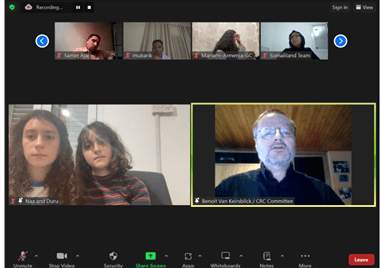
Screenshot depicting some of the participants, including Benoit Van Keirsblick, a member of the UN Committee on the Rights of the Child
In conclusion, Guleid Ahmed Jama, a children’s rights researcher from Somaliland, emphasized the significant challenges faced by unrecognized states in terms of accountability, education, access to global resources, and humanitarian concerns amid frequent conflicts. For him, recognizing the plight of these states within the international system is vital. Currently, the international system just focus on the UN, overlooking rights violations in these regions. As these countries are not UN members, there is a crucial need to establish proper mechanisms, reports, and international protection to ensure the safety of children.
What’s Next?
Listening to children’s stories was impactful, constructive and primarily served as a starting point. Our goal is to convene and explore practical, long term solutions. Subsequently, this conference will be succeeded by an in-person event on 17-18 January 24 in Famagusta, northern Cyprus. This event will feature presentations by academics and activists dedicated to children’s rights, along with a final report based on the outcomes of the chil-led events. Finally, we will do a workshop to develop a shared preliminary answer and agenda for action centred on how to better protect and realise the rights of children living in de facto states in the future.
